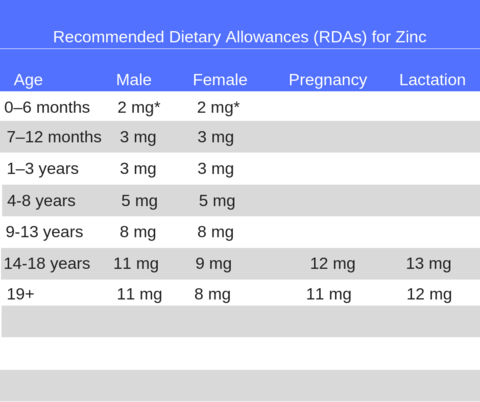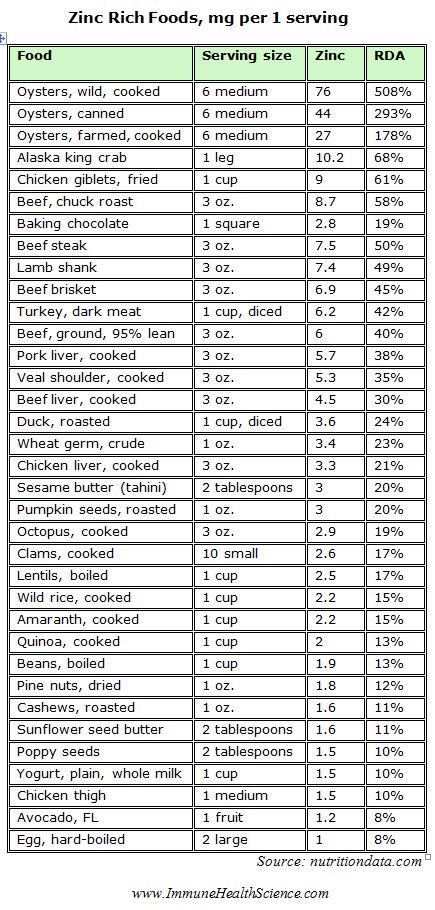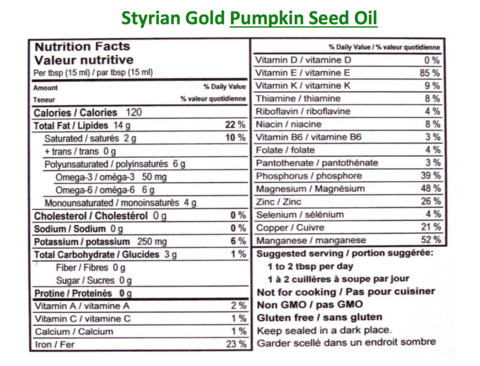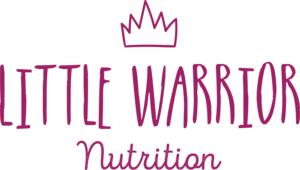Zinc Deficiency Stunts A Baby's Growth. Is Your Baby Getting Enough?
15 Sep, 2018
When it comes to nutrients for our growing baby, we all know iron is the star of the show. Iron is fortified into baby foods such as cereal and formula, BUT, iron isn’t the only important nutrient. It turns out zinc is just as critical for babies.
Why? I’m glad you asked…
Zinc is a powerhouse mineral. It also acts as an antioxidant. It plays many important roles in the body, however, it is not stored for long periods of time, so we always need a constant supply.
Here are our top 3 reasons that zinc is important for our babies.
#1) Growth
A deficiency in zinc can stunt growth as it’s a key nutrient in growing healthy bones. Current research confirms that having enough zinc from birth to age 5 can "program" a child's height.1
#2) Cognitive Development
Optimal zinc levels can lead to greater cognitive ability as researchers demonstrated in a study from the Journal of Pediatric Gastroenterology and Nutrition.
Infants were divided into two groups;
Group A: exclusively breast fed infants with first foods - iron fortified cereal
Group B: exclusively breast fed infants with first foods - meat
What did they find? The meat-fed infants had substantially higher zinc levels, brain growth and other developmental advantages.
#3) Immune System function
Adequate levels of zinc can protect your little one in cold and flu season. Low levels of zinc can suppress the immune system, making your little one more susceptible to infections. Eczema may also develop as zinc plays an important role in epithelial tissue growth.
Some Signs of Zinc Deficiency
- Poor appetite
- Lower resistance to infections
- Fatigue
- Loss of taste
- White spots on nails
So how much zinc does my baby need?

Source: https://www.canada.ca/en/health-canada/services/food-nutrition/healthy-eating/dietary-reference-intakes/tables/reference-values-elements-dietary-reference-intakes-tables-2005.html
Our little ones need a higher ratio of zinc compared to their adult counterparts. Four times as much actually. For example an 18 lb baby should be getting about 4 mg of zinc/day. That is roughly 1/4 of their body weight. Where as dad only needs 11 mg/day which is 1/16th of his body weight.
Too much of a good thing.
It's best to speak with a health professional about whether or not you or your baby should be supplementing zinc. If you supplement with zinc when your body doesn't need it, it can have the opposite effect; nausea, lowered immune function, altered iron function to name a few. If you are unsure of how to supplement or dose, contact us! We are always happy to answer your questions. We also have a Children's Diet Assessment if you are concerned your baby isn’t getting enough zinc.
How do I give my baby enough zinc?
Our favourite way of getting enough zinc is through nutrient dense foods of course! We make it our mission to find the most nutrient dense food sources of this vital mineral. When our babies first start solids, they don’t eat much, maybe 1-2 tbsps/day, so it is our job to make sure what they do eat is loaded with nutrients. It is equally as important for breastfeeding Mama’s to make sure they are getting enough zinc too, because you are doing double duty!
Here is a chart that lists the most nutrient dense zinc foods.

As you can see Oysters top the charts, but we don’t recommend shellfish until 21-24 months of age. What we DO recommend is red meats such as lamb and beef (which also contain iron, another VERY important nutrient). This is one of the reasons we are big supporters of traditional animal foods as they contain the highest content and the most absorbable form of these super important minerals. Choosing organic, grass-fed, hormone free/antibiotic free, non GMO is the best way to go.
What if our family is vegetarian/vegan?
We have great news! We are so excited to have found this incredible oil that is loaded with zinc. Styrian Gold Pumpkin Seed Oil. This cold pressed European oil is off the charts for nutrient density. It is also a great source of fat, and as you know we stress the importance of healthy fats for our children. Check out the nutrient profile of this oil. 1 tbsp makes up 26% of your daily intake. Whoa baby! Add it to everything, including your little ones veggies, as well as sneak a spoon full for yourself Mama, you deserve it too. Just don't cook with it. It is a heat sensitive oil, and should be kept in the fridge, just like your cod liver oil. Even if your baby is a meat eater, this oil can be added for variety and an extra boost of zinc. We love it and regularly use it with all our babes.

Watch out for Zinc blockers!
Foods such as soy, grains and legumes contain “anti-nutrients” called phytates. These phytates bind to zinc and prevent the absorption of this important mineral. There is a way to disarm these phytates and that is through soaking and sprouting our grains and legumes. Fermented soy doesn’t contain phytates (miso, tempeh, natto), which is a better choice compared to tofu, edamame or any other soy products. Remember to always choose non-GMO and organic when it comes to soy products for our little ones.
In Conclusion...
Make zinc a regular part of your baby's diet, and your diet as well! It is great for fertility (men and women), pregnancy and breast feeding mamas. Consult with a health professional if you are unsure about what you need. We strongly recommend sourcing your zinc through food first before supplementing. We love to hear from you, so If you have any questions, please comment below.
Sources:
1. Genzlinger, Kelly, et al. Super Nutrition for Babies: the Right Way to Feed Your Baby for Optimal Health. Fair Winds Press, 2012.
